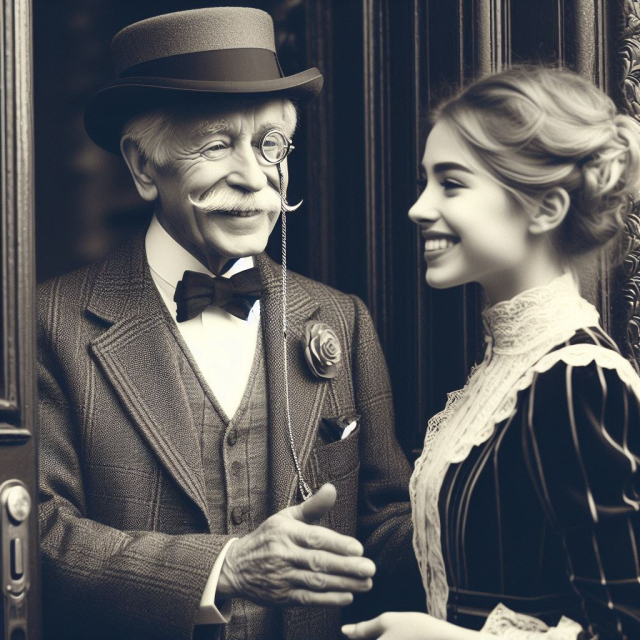Manners, considered as the set of behaviors and attitudes that reflect respect, courtesy and consideration towards others, are fundamental in human interaction and in building positive relationships in society. In this extensive article, we will thoroughly explore the importance of manners in everyday life, their evolution over time and how they can influence various aspects of our lives.
Manners.
Manners are an essential component of social life. From the simplest to the most complex interactions, manners play a crucial role in how we relate to others and how we are perceived in society. These norms of behavior vary by culture, but share the common goal of promoting harmony and mutual respect.
The Importance of Manners in Modern Society.
In modern society, manners remain fundamental for a harmonious and respectful coexistence. Let's look at some key aspects of its importance:
They promote Respect and Empathy.
Manners teach us to be respectful of others and consider their feelings and needs. By demonstrating courtesy and empathy in our interactions, we promote an environment of mutual respect and understanding in society. This is especially important in a diverse and multicultural world where understanding and respect for differences are essential for peaceful coexistence.
They facilitate effective communication.
Manners help establish a framework for effective communication, facilitating interaction between people and reducing the risk of misunderstandings and conflicts. Appropriate use of language, tone of voice and body language are important aspects of manners that contribute to clear and positive communication. In an increasingly interconnected and globalized world, the ability to communicate effectively is essential for personal and professional success.
They strengthen social relationships.
Manners are key to building and maintaining healthy and satisfying social relationships. By showing respect, courtesy, and consideration toward others, we can cultivate positive relationships based on trust and kindness. This is especially important in environments like work, where interpersonal relationships play a crucial role in career success and job satisfaction.
They contribute to Professional Success.
Manners are important in the work environment, where they can influence the impression we make on colleagues, clients and employers. Professional and courteous behavior can open doors to career opportunities and contribute to long-term career success. Additionally, manners are an integral part of business etiquette and can affect the perception of our professionalism and competence in the workplace.
They promote peaceful coexistence.
In an increasingly diverse and multicultural world, manners play a crucial role in promoting peaceful coexistence and understanding between people of different origins and beliefs. By showing respect for cultural differences and practicing tolerance, we can build a more inclusive and harmonious world. Manners help us overcome cultural barriers and find common ground with others, facilitating collaboration and cooperation in an increasingly interconnected world.
The Evolution of Manners Over Time.
Manners have evolved throughout history in response to social, cultural and technological changes. What was considered appropriate in the past may not be appropriate in modern society, and vice versa. For example, table etiquette has changed over time, as have expectations about the use of language and dress in different social settings. The evolution of manners reflects changes in societal values and attitudes over time, as well as advances in technology and communication that have influenced the way we relate to others.
Manners in Ecuador.
In Ecuador, manners play a significant role in everyday life and are valued as an integral part of social etiquette. Ecuadorian culture is characterized by its warmth and hospitality, and manners reflect these fundamental values. For example, it is common to greet with a handshake or a kiss on the cheek, depending on the degree of familiarity between people. Courtesy and respect for others are important aspects of social interaction in Ecuador, and people are expected to treat each other with kindness and consideration. Additionally, punctuality is valued in Ecuadorian culture, and being late for an appointment or meeting can be considered a lack of respect for others. In terms of table etiquette, it is polite to wait until everyone is served before beginning to eat, and it is customary to express gratitude to the host at the end of a meal. In the workplace, respect for superiors and collaboration with coworkers are important aspects of professional manners in Ecuador.
The Practice of Manners in Everyday Life.
Practicing manners in everyday life involves being aware of our actions and their impact on others. Some ways to show good manners include:
- Greet and say goodbye politely.
- Use an appropriate and respectful tone of voice.
- Actively listen to others without interrupting.
- Show gratitude and appreciation for favors and acts of kindness.
- Respect the personal space and boundaries of others.
- Be considerate when communicating online and on social media.
Manners play a vital role in modern society, promoting respect, courtesy and empathy in our daily interactions. Through the practice of good manners, we can strengthen our social relationships, improve our communication and contribute to a more harmonious and respectful world. Manners are an integral part of social etiquette and help us successfully navigate a variety of social and professional situations.
